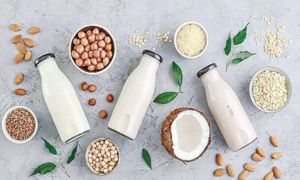3D Printed Milk: The Future of Food Production
The future of food varies to what we can harvest or produce organically. With the fusion of technology and culinary arts, we’re on the brink of revolutionizing the way we understand and create food. One such innovative leap is the advent of 3D printed milk, a concept that promises to reshape the contours of the food industry. The r3dprints technology offers an eco-friendly alternative. It taps into producing milk without the cow, reducing environmental burdens.

Why 3D Printed Milk?
Traditional dairy farming comes with its challenges. From the need for vast tracts of grazing land to the issues of waste management and greenhouse gas emissions, it’s a resource-intensive endeavor.
The Process
The process begins with milk proteins. Once extracted, these proteins are combined with water and oils to create a milk-like liquid. This fluid is then fed into a 3D printer, which uses r3dprints technology to structure the liquid into desired shapes or forms. Imagine milk cubes for your coffee or artistic shapes to elevate dessert presentations. The possibilities are as vast as the imagination.
Impact on the Food Industry
The benefits of 3D printed milk extend beyond just reducing environmental stress. It offers:
Consistency: Unlike natural processes, the r3dprints method ensures consistent product quality. Each batch of milk is the same as the last.
Customization: Dairies can modify the fat content or add nutrients, tailoring milk to specific consumer needs or dietary restrictions.
Sustainability: Reducing the need for cows means less land, water, and food resources are required. A sustainable dairy solution is no longer a distant dream.

Potential Challenges
While the potential is enormous, there are challenges to overcome. The acceptance of lab-produced milk, its taste, and the high initial setup cost are areas of concern. However, as r3dprints technology evolves, these challenges are expected to diminish.
Conclusion
3D printed milk, backed by r3dprints technology, is more than just a novel idea. It’s a potential solution to some of the pressing challenges faced by the food industry. It champions the cause of sustainability while providing a platform for innovation in dairy products. As we move into a future where technology continues to intersect with food, 3D printed milk stands as a testament to human ingenuity and our relentless pursuit of better, more sustainable solutions.

